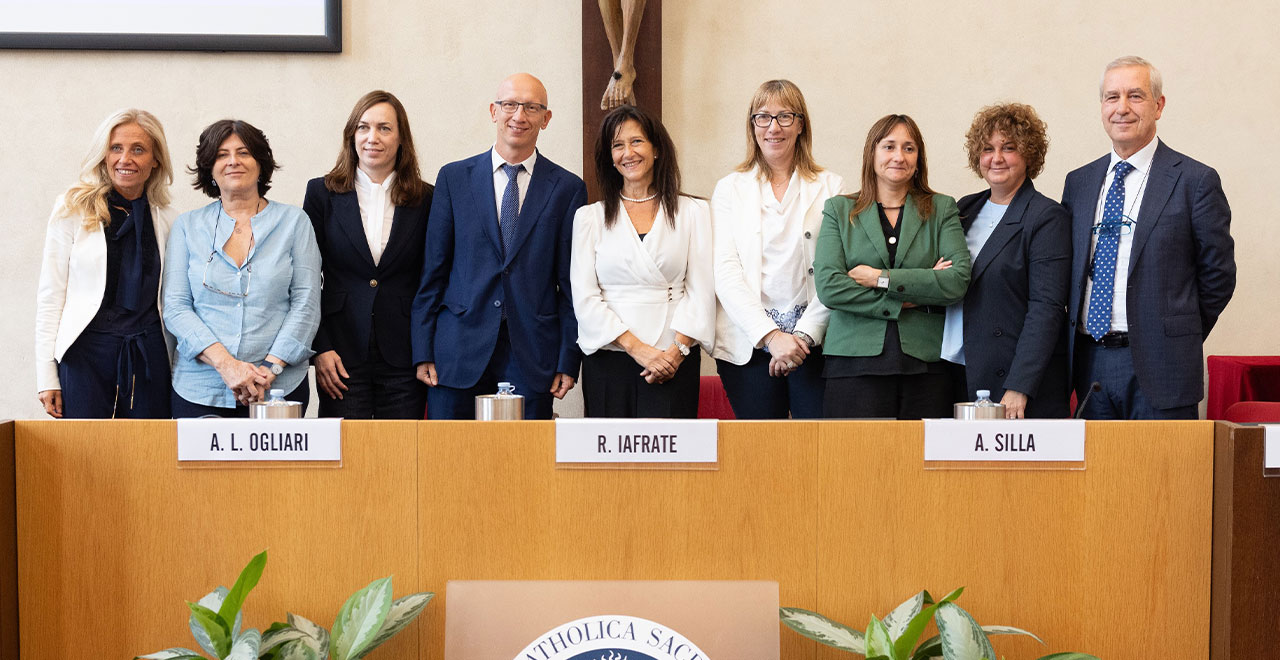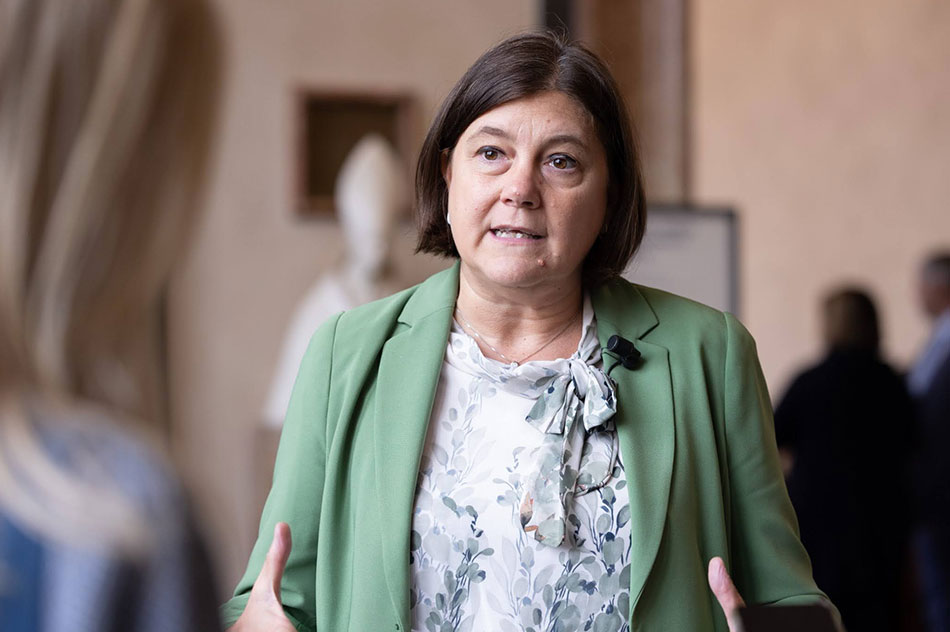Special remote guest, introduced by Professor Claudia Manzi, Professor of Psychology of Leadership and Coordination in Università Cattolica, was Michelle Ryan, Professor of Social and Organizational Psychology at the Australian National University, who is known in the news for coining the expression ‘glass cliff’ to denote barriers and discrimination that are an obstacle to women’s career advancement. Even today there are many factors that limit women’s progress, but what Ryan’s research focuses on most are the gender norms and stereotypes that shape our society and organizational cultures: “The way women and men are believed to have different characteristics and abilities; the way the division of labor at home is based on gender; our expectations of how to become a good leader; and the aspects of work that should be rewarded. All of these factors influence how women are treated in organizations, the opportunities they are given, and this, in turn, shapes their career choices.”
This requires an inclusive organizational culture that promotes a sense of belonging and support for all, as well as having clear and transparent criteria for remuneration, promotion, and leadership positions, criteria based on what is needed for the job and not just who has previously held the job.
After Ryan’s analysis and reflections, a panel discussion among equal opportunities delegates from Milan universities followed, opened by Professor Raffaella Iafrate, a delegate from Università Cattolica. The philosophy that guided and directs the choices of the task force on Equal Opportunities “is based on the fact that Equal Opportunity constitutes the possibility of expressing and affirming the equal dignity of all people while respecting their differentiating uniqueness,” Iafrate specified. “That is why all the realities dealing with generational, ethnic, religious, socio-economic, motor and cognitive ability differences and their intersections are involved.”
The different actions put in place by Milan’s universities will be shared and this means “coordinating all the knowledge available on women’s rights and equal opportunities in Milan. The metropolis is in the vanguard, and this is demonstrated by the fact that so many universities, including Cattolica, have women rectors” ‒ as pointed out by Maria Elisa D'Amico, the Rector's delegate for Legality, Transparency and Equal Rights at the University of Milan. The most ambitious project of the Research Centre “will be to structure a PhD on gender studies, not only to talk about rights but for all fields that affect human activities: even for businesses it is important to have someone who knows about diversity and inclusion."
Speakers at the initiative included Stefania Leone representing the University of Milan, Paola Profeta, Rector’s delegate for Diversity, Inclusion and Sustainability at Bocconi University, Maria Grazia Riva, delegate for Orientation, Gender Policies and Equal Opportunities at the University of Milano-Bicocca, Vanessa Gemmo, the Rector's delegate for Equal Opportunities at Iulm University, Anna Lucia Ogliari, the Rector's delegate for Disability and Equal Opportunities at the Vita-Salute San Raffaele University of Milan, Mara Tanelli, the Rector's delegate for Diversity and Inclusion at the Politecnico di Milano University.
Closing the morning was the reflection of Luigi D'Alonzo, the Rector's delegate for Inclusion at Università Cattolica, who recalled how Italy is “the world’s guiding light for inclusion with its more than 50 years of experience; now we need inclusion to get into the skin and not just the organizational context.” The meeting, moderated by journalist Andrea Silla, had Rai For Sustainability as a sponsor, TGR as media partner and was organized under the auspices of No Women no Panel, the European Commission’s project to promote gender balance.





